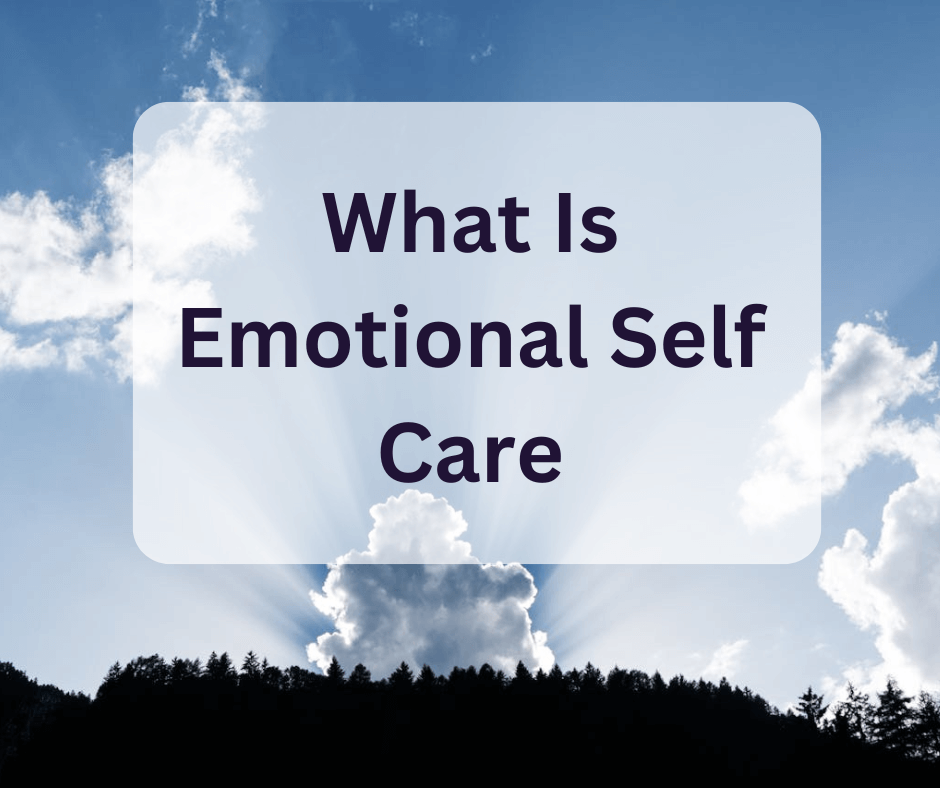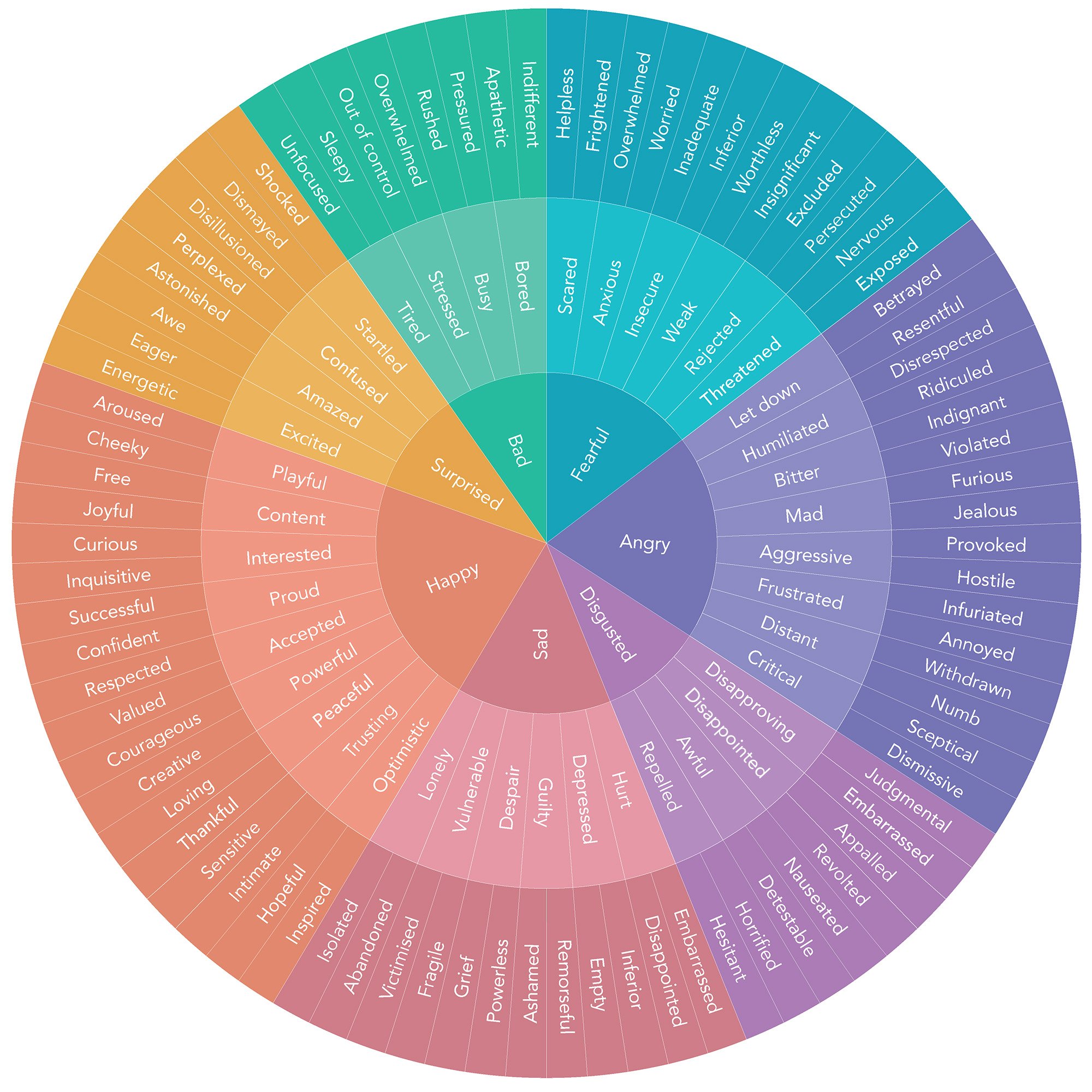If you were wondering what is emotional self care, this article will dive into the different aspects that make it up. We will look at the 7 pillars of emotional self care, and how you can make space for it in your daily life.
Emotional health is often overlooked. In a society obsessed with appearances, we only focus on the physical. The emotional side of our live is not visible, so we tend to overlook it.

In the last decade, emotional issues and burnout seem to affect more of us, and at an earlier age. So conversations about them, and what is emotional self care, are more frequent. Unfortunately, this is only the case in certain corners of the internet.
What Is Emotional Self Care
Let’s dive into what is emotional self care.
I have broken it down into 7 main pillars:
- cultivating emotional awareness
- learning and practising emotional regulation
- setting up and enforcing boundaries
- mindfulness
- gratitude practice
- connecting with others
- self love
So let’s break these down and discuss, in detail, what is emotional self care and how to make it a habit in your day-to-day life.
1. Emotional Awareness
When you deal with your emotions, you first need to be able to identify them. We all have emotions, at all time. This is what drives most of our decisions and choices. But how often are you able to identify your emotions at any given moment? How often are you able to name them?
If you cannot identify and understand your emotions, you are their prisoner. As soon as you learn to name them, understand where they are coming from, you gain power over them. They lose their power over you, and instead you are in the driver’s seat.
For example, if something angers you, you have more control over your reaction if you notice and acknowledge the anger. If you don’t stop to observe yourself, you will react and you will do something impulsive.
If you struggle identifying your emotions, you can start by using a feelings wheel.

This is your first step in your emotional self care journey.
2. Emotional Regulation
Emotional regulation is the ability to manage your emotions, and not let them lead you. Learning to regulate emotions starts in early childhood. Your carer’s reaction to your emotions teaches you how to soothe yourself in the future. By observing their reactions and how they regulate their own emotions, you learn your future behaviour.
Most likely, our parents and carers have struggled with their own emotional regulation. That is not to say they should be blamed. They did their best with the tools they had available at the time. But they are human and imperfect, just like us. So it falls on us to learn to soothe ourselves, if we want to have a healthy and balanced emotional life.
There are a few ways you can do that:
Create Space
This relates back to our previous point, about not reacting on the spot. When you feel a surge of emotion overwhelming you, pause. Observe instead of reacting. If you have the tools, try to name it. But even if you don’t, just take a moment before you say or do something.
This will allow your body to disconnect from that reactive state. It will also give you time to get a clearer picture.
Another important skill to have in your emotional tool kit is staying with your negative feelings. Whenever we have an unpleasant emotion, we try to silence it. We do that either by distracting ourselves with work, or other unhealthy coping mechanisms. But this won’t make the feeling or the problem go away. By avoiding it, we feed the cycle of emotional disregulation.
Instead of trying to remove a negative feeling, try to stay with it. Analyse it. Try to understand where it is coming from, and why it bothers you.

Grounding
There are certain exercises and techniques you can use to disconnect from a triggering emotion. This is called grounding.
Instead of allowing an emotion to overwhelm you, you can try bringing your attention to the immediate reality.
There are countless exercises out there, the most common one is the 54321 method. It’s easy to remember and it’s a useful trick to have whenever you are feeling overwhelmed.
Here’s how it works:
- identify 5 things you can see
- 4 things you can touch
- 3 things you can hear
- 2 things you can smell
- 1 thing you can taste
Doing this exercise will get you out of your head and help bring you back to the present.
Talking About It
When you think about what is emotional self care, calling a friend is not the first thing that comes to mind. But talking actually helps with regulating our emotions.
Talking about a problem can reduce stress and give perspective. Again, it gets you out of your head and helps you unload your burdens. It also gives you a clearer mindset, which will lead to better problem solving.
Have you ever felt the weight of the world on our shoulders, only to talk it out and feel more empowered as you do it? This is the power of talking. Our problems seem so much bigger in our heads. As soon as we share them with someone, they lose some of the power. This gives us a feeling that we’re not alone, which is empowering.
Journaling
Journaling has a similar effect to talking: it helps you put things into perspective. It’s very useful if you are struggling with an emotion you don’t want to share.
Journaling as a regular practice is also a great tool for emotional regulation. It gives you the habit of analysing and breaking down your issues. It teaches you to put into question every emotion and see it from every angle. It’s also good to clear your head every day. It’s like brushing your teeth, but for your mind.
If you don’t know where to start with journaling, don’t worry. There are so many journaling prompts out there.
3. Boundary Setting
Boundaries are limits that we set to protect our mental and physical space. Many negative emotions come from a lack of boundaries, or our failure to protect them.
It is normal and healthy to have limits.
When others cross certain lines, this can hurt, create frustration and emotional overwhelm. For a healthy emotional life, you should learn to set boundaries in your relationships with others.
Don’t know where to start? Try to be observant. When you have a negative emotion, try to understand:
- what caused it, where it’s coming from
- what you can do to avoid it in future
This is how you know what boundaries you need to set in your interactions with others.
Of course, this is easier said than done. Because identifying a limit and setting a boundary is only the first step. The hardest part is enforcing it.

For many people, it is uncomfortable to have a conversation about limits. It’s embarrassing and unpleasant to call people out. Or you might wish to avoid judgment from others. This is understandable.
But ask yourself: how much worse does it feel when they ignore your boundaries? No matter how unpleasant you think these conversations are, you can make them a habit. Just start with something small and be consistent. It’s like building a muscle.
4. Mindfulness
Mindfulness is one of the more talked about aspects of emotional self care. The internet, and even the mainstream media, talk about the benefits of mediation and how to get into it. There are countless apps that guide you through your meditation practice. There is information available for all levels, from absolute beginner to advanced.
And for good reason. There is plenty of research out there proving that mindfulness reduces stress, builds resilience, and even helps with pain management.
Whether it’s mediation, or breathing exercises, mindfulness is a great tool to have in your kit. You don’t need to spend a lot of time or energy to include this practice in your day-to-day. You can start with a 10-minute exercise, which you can squeeze in any moment of the day.
But you don’t need to sit down and have an app to practice mindfulness. You can apply it in everything you do, without putting time aside. Mindfulness means being present. It is being aware of the present moment and observing your emotions and your reactions to them. Try being more aware of the present moment.
You know when you can’t find your keys, you put an object in the wrong place, or can’t quite remember a conversation? That’s because you weren’t mindful in those moments. You allowed your mind to wonder and didn’t engage with the present. Try to be more aware from now on. Notice your surroundings, put intentional thought into your actions. This is also mindfulness.
5. Gratitude
Gratitude is another pillar of emotional self care that is easy to apply in your daily life with remarkable benefits. It is the practice of acknowledging the good things in your life. It helps you have more positive emotions and reduces stress. With long term practice, gratitude changes the way you think.

How do you get into it? It’s easy. List 3 to 5 things every day that make you feel grateful for. Take the time to think about it, don’t just list them to get them out of the way. You need to feel the gratitude.
The way you do this is by being specific. For example, instead of:
- “I am grateful for my dog”
- try “I am grateful for the cuddle session I had with my dog this morning”
Do you notice how the second option forces you to re-live a positive moment?
Try to focus your gratitude practice around feelings, around the benefits to your life.
6. Connection
This is a broad term, but it boils down to creating connection with others and the world around us. We are not meant to be isolated. We are a part of a whole, and we have an intrinsic need to belong. Neglecting your connections is neglecting a vital part of your emotional self care.
Meaningful Relationships
Humans are social animals, and our wellbeing depends on us being part of a community. Studies have shown that people who struggle with loneliness are more depressed, anxious and live shorter lives.
So make time for your friendships. Check in with your best friend. Go to that dinner you’ve been postponing. Next time you get an invitation to a party or event, don’t turn it down. Call your relatives from time to time and ask them how they’re doing. Take time after work to chat with your partner. All these things matter and they are essential to your emotional stability.
Community
Our need for connection runs deeper than our immediate relationships. We also need to feel part of a bigger tribe. We need to feel useful.
If you can, take some time to contribute and give back. I know we’re all busy with everyday life. But it’s important to set aside an hour or two every couple of months to volunteer for a cause you support. Find something that matters to you. Or try as simple as helping someone in need.
These actions create positive emotions and make you feel you belong to something bigger than yourself.
7. Self Love
The last pillar of emotional self care is self love.
We are often so critical of ourselves. Our expectations of ourselves are always growing. There’s more and more on our plate. The world around us puts more pressure on us, and we put the same, if not more pressure on ourselves.
We have forgotten how to care for ourselves. Most of the time, we’re our biggest bully.
However, emotional health cannot exist when there’s constant pressure and unrealistic expectations.

Self Acceptance
You have to accept that you are not perfect. And that you’re not supposed to be. Meet yourself wherever you are. Life is a journey, and we are all doing our best. And in spite of what you see on social media, we’re all struggling and imperfect.
Learn to accept your shortcomings. It doesn’t mean that you’ve given up on self improvement. It just means that you acknowledge it’s a journey, and not about perfection.
Self Compassion
Have you ever found yourself unable to sleep, worrying about a stupid thing you said or done during the day? I know you have, and everyone does.
The good news is that we are all idiots at some point or another. There isn’t anyone in the world, no matter how successful, who hasn’t made a mistake.
Not only that, but you are not the only one who’s ever said or done something wrong. While it’s important to hold yourself accountable, dwelling on your mistakes for too long serves no purpose. For you, or the people involved. Evaluate what’s happened, learn from it, apologise if you have to, and move on.
Mistakes are how you learn and grow. So have some understanding for yourself.
Positive Self Talk
If you are the kind of person who is always self critical, you need to stop now. Beating yourself up is not productive. It serves no purpose whatsoever. And the way you talk to and about yourself influences your emotional wellbeing. Words do have power.
There are so many people who call themselves names for getting something wrong. Hey belittle themselves for making a mistake. Unfortunately, this internalises negative messages.
Try instead to give yourself space and understanding. Instead of:
- “I made a mistake again, I’m so useless”, try
- “I made a mistake, but it’s normal. This is how I’m learning”.
Treat yourself like you would a friend or a child. You wouldn’t be harsh or condescending. You would be encouraging and supportive. You deserve the same. Be supportive of yourself, you are doing your best after all.
Conclusion:
What is emotional self care? It’s constant self work meant to improve your emotional wellbeing. Despite the many aspects I’ve outlined above, you can start integrating it in your daily life. Like with everything, it’s best to ease into it.
Try to include a new practice in your daily habits. Take 5, or 10 minutes – as long as you can afford. I promise, you will see the benefits.
If you want to learn more about self care, check out this article on the 7 pillars of physical self care.

